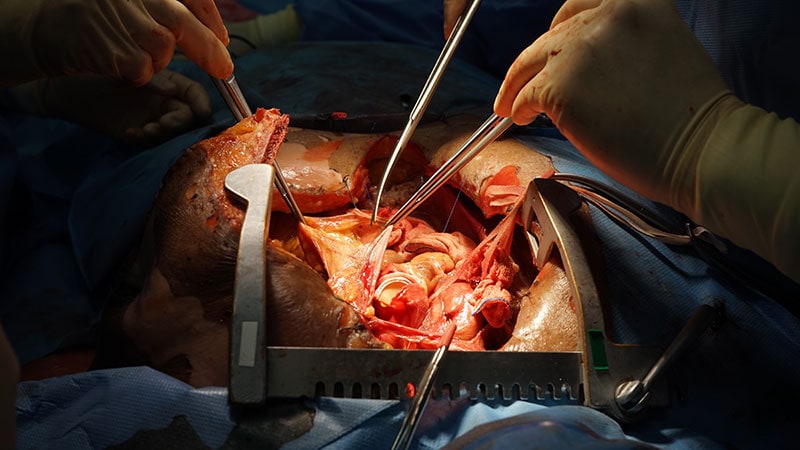Temel Kavramlar
Heart transplant outcomes are similar between DCD and DBD recipients.
Özet
The study compared heart transplant outcomes between patients receiving hearts from donation after circulatory death (DCD) and donation after brain death (DBD). Key highlights include:
No significant differences in 1-year mortality, survival to hospital discharge, severe primary graft dysfunction (PGD), and other outcomes.
Similar survival rates at 1 year post-transplant between DCD (94.3%) and DBD (92.4%) recipients.
Comparable survival rates at 30 days, 6 months, and incidence of severe PGD between the two groups.
DCD heart transplantation outcomes support expanding the heart donor pool.
Results suggest DCD can be safely performed without compromising outcomes in large-volume centers.
Limitations include a single-center study with a retrospective design and modest sample size.
Follow-up was limited to 1 year after transplantation.
More Data Support Heart Donation After Circulatory Death
İstatistikler
"There was no difference in 1-year post-transplant survival between DCD (94.3%) and DBD (92.4%) recipients."
"The incidence of severe PGD was similar between groups (5.7% DCD vs 5.7% DBD)."
Alıntılar
"Our findings add to the growing body of evidence in support of DCD heart transplantation."
"These results provide confidence that DCD can be safely and effectively performed without compromising outcomes."
Önemli Bilgiler Şuradan Elde Edildi
by Pauline Ande... : www.medscape.com 10-02-2023
https://www.medscape.com/viewarticle/997023
Daha Derin Sorular
How might longer-term outcomes impact the acceptance of DCD heart transplantation?
Longer-term outcomes play a crucial role in determining the acceptance of DCD heart transplantation. While the study mentioned in the context showed promising results in terms of 1-year post-transplant survival and other key outcomes, the impact of DCD on long-term survival and graft function remains an important consideration. If further research demonstrates that DCD heart transplants maintain comparable long-term outcomes to DBD transplants, it would significantly boost the acceptance of DCD as a viable option for increasing the heart donor pool. Patients, clinicians, and transplant programs would be more inclined to embrace DCD heart transplantation if evidence supports its efficacy and safety over an extended period post-transplant.
What are the potential drawbacks of expanding the heart donor pool through DCD?
While expanding the heart donor pool through DCD offers the potential to increase the availability of donor hearts for transplantation, there are several drawbacks to consider. One significant concern is the quality of DCD hearts compared to DBD hearts. DCD hearts may be more susceptible to ischemic injury due to the nature of donation after circulatory death, which could lead to higher rates of primary graft dysfunction or other complications post-transplant. Additionally, there may be ethical considerations surrounding DCD, as the determination of death in DCD donors can be more complex and raise concerns about organ procurement practices. Furthermore, the logistics of organ recovery and preservation in DCD cases may present challenges, as the timing of organ retrieval is critical and requires careful coordination to ensure optimal outcomes for transplant recipients.
How can financial considerations influence the decision to adopt DCD in heart transplant programs?
Financial considerations play a significant role in the decision to adopt DCD in heart transplant programs. While DCD heart transplantation has the potential to expand the donor pool and increase access to life-saving transplants, there are associated costs that need to be taken into account. The use of advanced techniques such as ex vivo machine perfusion or normothermic regional perfusion in DCD organ recovery may incur additional expenses compared to traditional static cold storage methods. These costs can impact the overall budget of transplant programs and may require investment in infrastructure and resources to support DCD procedures. Reimbursement policies and insurance coverage for DCD heart transplants also influence the financial feasibility of adopting DCD, as programs need to ensure sustainable funding mechanisms to support the implementation and success of DCD heart transplantation initiatives.
0
